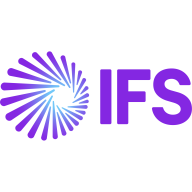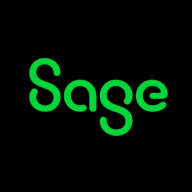

Sage Business Cloud Enterprise Management and IFS Cloud Platform both compete in enterprise management solutions. IFS Cloud Platform has the upper hand due to its comprehensive features, whereas Sage is noted for its pricing advantages and customer support.
Features: Sage Business Cloud Enterprise Management offers robust financial management and effective supply chain capabilities. It provides excellent tools for inventory management. IFS Cloud Platform provides end-to-end ERP solutions with strong asset management, service management, and manufacturing functionalities. IFS features a broader industry-specific feature set that differentiates it from Sage.
Ease of Deployment and Customer Service: Sage Business Cloud Enterprise Management has a straightforward deployment process and strong customer support praised for simplicity. IFS Cloud Platform, while more complex, offers flexibility and supports customization, making it adaptive and comprehensive in customer service.
Pricing and ROI: Sage Business Cloud Enterprise Management generally involves lower initial setup costs, providing a reliable ROI with cost-effective solutions. IFS Cloud Platform may have higher initial costs but justifies this with enhanced functionalities and a strong long-term ROI perspective.


IFS is the world’s leading provider of Industrial AI and enterprise software for hardcore businesses that make, service, and power our planet. Our technology enables businesses which manufacture goods, maintain complex assets, and manage service-focused operations to unlock the transformative power of Industrial AI™ to enhance productivity, efficiency, and sustainability. Industrial AI is IFS.ai.
IFS Cloud is a fully composable AI-powered platform, designed for ultimate flexibility and adaptability to our customers’ specific requirements and business evolution. It spans the needs of Enterprise Resource Planning (ERP), Enterprise Asset Management (EAM), Supply Chain Management (SCM), Information Technology Service Management (ITSM), and Field Service Management (FSM). IFS technology leverages AI, machine learning, real-time data and analytics to empower our customers to make informed strategic decisions and excel at their Moment of Service™.
Sage Business Cloud Enterprise Management delivers faster, simpler, and more flexible business management at a fraction of the cost and complexity of typical enterprise ERP systems.
We monitor all ERP reviews to prevent fraudulent reviews and keep review quality high. We do not post reviews by company employees or direct competitors. We validate each review for authenticity via cross-reference with LinkedIn, and personal follow-up with the reviewer when necessary.